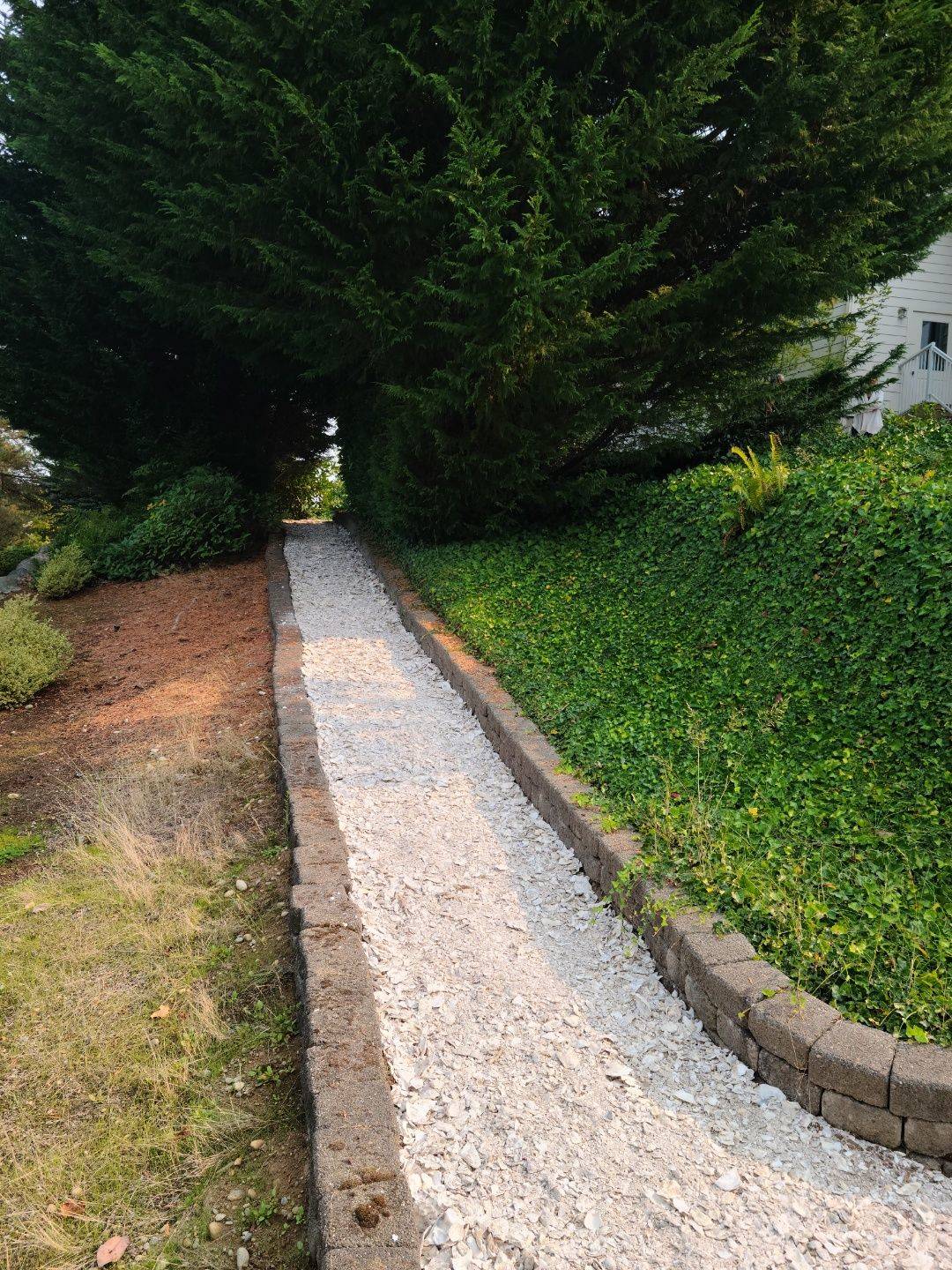You don’t have to walk on eggshells to hike across a bed of oysters anymore.
Mark Soboil is recycling local oyster shells and crushing them to be used on driveways, parking spots and landscaping.
Soboil said while oyster shells are used often in the upper Northeast in that manner, it’s fairly new to the Pacific Northwest.
It’s fairly new to him, too. He just started Shellscapes after COVID-19 hit.
Soboil moved with his family to Bainbridge Island three years ago. He grew up in South Africa, but got his bachelor’s degree in marine biology at the University of Washington. For grad school he attended the University of Rhode Island, where he met his wife. They moved to New Zealand, had two boys and stayed for 10 years before moving to BI as much of his family lives in the PNW now. His wife Julie’s family is back east in the Cape Cod area.
“They love using shells for parkways and driveways,” Soboil said.
Clam shells are commonly used there, but oyster shells break down better. He said oysters grow in layers so when they are crushed they flake and are soft. “It’s nice to walk on,” he said.
When crushed, they also have a natural binding agent that’s like a powder. Gravel, to compare, needs a chemical binder so it doesn’t wash away. And, of course, that chemical could end up in the groundwater.
In his career as a marine biologist, Soboil has had to travel, doing things like starting fishery management programs in developing countries. He had to spend a lot of time away from his family.
“When COVID hit that all changed. At the beginning of summer all my contracts stopped. We couldn’t go anywhere.”
He decided to renovate his house, and was looking for shell to use in the yard. He couldn’t find a local supplier.
Farmers used to harvest the oyster, shuck the shell and bottle the meat. There would be piles of shells on oyster farms. They would eventually put the shells in bags, which they placed back in the ocean, where oysters would regrow.
But technology has changed that industry. Most now grow land-based oysters.
“People want a nice oyster (in a shell) on the plate,” he said.
He said cities sometimes buy excess oyster shells to feed oyster beds in Puget Sound.
Soboil was able to find some oyster shells, and after crushing them worked with his gardener, Lou Rowe, to put shells on a path leading to his garden, in an area where he barbecues and has a pizza oven, and in a cul de sac on his property.
“Aesthetically it’s gorgeous,” she said. “It looks beautiful here — a great contrast to the evergreen. Especially when it’s so gray it really pops.”
Rowe said it drains well, and also keeps away mildew. Soboil said it drives away slugs and keeps weeds and moss from growing, too.
“I wish I could afford it,” Rowe said, adding that’s the one downfall of the product. She said it’s costly upfront but in the long term it is worth it. You don’t have to make it that thick, maybe 2 inches on a trail, for example. It’s easier to rake than rocks so it’s nice to work with, she said.
“Bainbridge Island is a great place to feature this product,” Rowe said. As for the East Coast, she said, “wait until they get a hold of what we’re doing over here.”
Eventually, Soboil was able to find an oyster shell supplier for his business. “They were really keen on recycling the shell” in a sustainable, environmentally friendly way, he said.
They started a partnership where he buys their shells, then processes them and sells the finished product to landscapers, landscape architects and homeowners.
Even though many people live on BI, not that many can see the water. “This connects them to the ocean,” he said.
Soboil said he’s glad he’s started the business, because he doesn’t know when travel is going to open up again. “A lot of jobs … I don’t think are going to just switch on again,” he said. “It could be a blessing in disguise.”
“COVID forced me to see what else I could do. I was in a little bit of a panic.”
Soboil said his two boys are getting older, and with this job he won’t need to be away for big chunks of time.
He said it’s ironic that he’s getting into this business. His mom was a landscaper years ago in Cape Town. Growing up, he was a laborer for her during summer vacation.
“I’m circling around, coming back,” he said.



